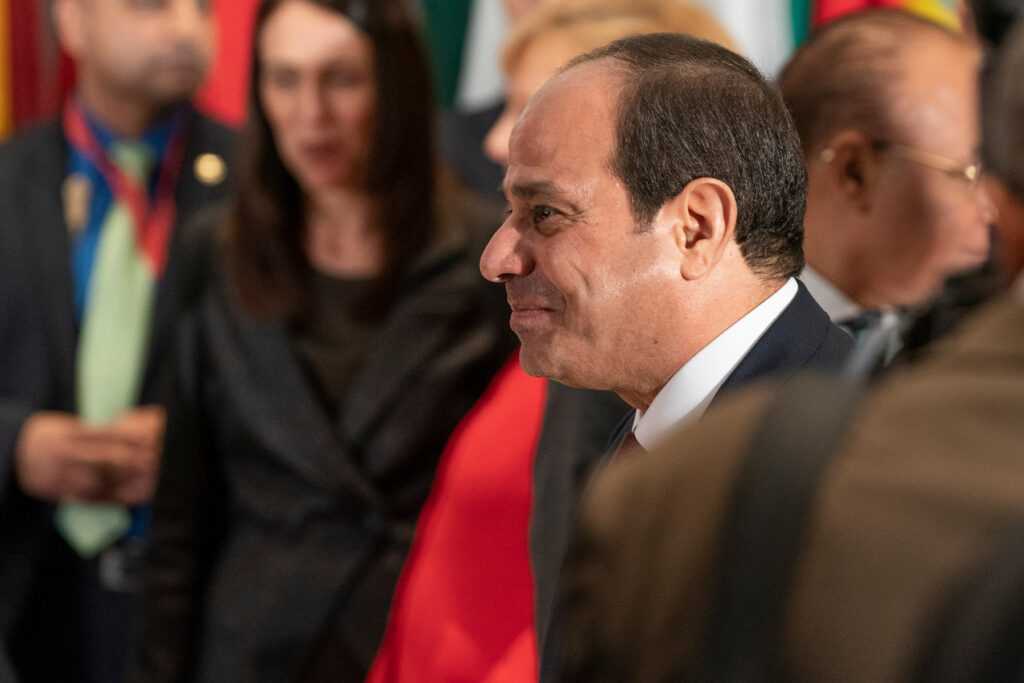Most people would agree that over the past 20 years things haven’t gone too well for the United States in the Middle East. Historian Alfred McCoy identified George W Bush’s notorious foreign policy experimentation foolishly focused on deploying military means to ensure domination over a strategic resource-rich region as the key factor that precipitated the inexorable decline of the US as the the world’s hegemon and arbiter of a “rules-based order.”
Although Americans are now focused on the mission in Ukraine, the non-Western world is still in a state of shock over President Joe Biden’s shambolic retreat from Afghanistan in August 2021. It followed two decades of tragic and ultimately meaningless engagement inaugurated by Bush in 2001 and cluelessly prolonged by Barack Obama and Donald Trump. This ongoing string of events over the first two decades of the century has convinced the populations and even the governments of the global South that the US decline is well on its way.
The Afghanistan debacle, followed strategically by the stated mission of weakening Russia via a proxy war in Ukraine that Biden promises will last “as long as it takes,” have undermined global trust in US foreign policy and the ideology in whose name acts. Despite growing evidence that a multipolar world is now emerging, destined to replace the unipolar hegemony of the US, Americans still believe in their mission that consists of guiding every region of the world to embrace Superman’s ideal of imposing “the American way.”
Reuters has just published an article by Idrees Ali bearing the title: “U.S. defense secretary aims to reassure Mideast allies, deliver tough message.” Americans still believe that the best way to “reassure” is to act “tough.” Ali cites the former head of American forces in the Middle East, Retired U.S. Marine Corp General Frank McKenzie, who explains that “the region is significant to the United States in part because of China’s growing role.” The Middle East was once deemed significant because of Saddam Hussein’s dreaded (but inexistent) weapons of mass destruction, as well as the threat posed by terrorist organiations — first Al Qaeda and then ISIS — all of which were present in the region. Now it’s China, a nation located thousands of kilometers away.
A close reading of this quote reveals two things: not only the growing paranoia of the US with regard to China, but also the profound indifference of the US to the fate of the region and its people. The problem that concerns the US isn’t war, terrorism, poverty, dictatorial regimes, repeated refugee crises and gutted economies. No, the problem identified by the US is “China’s growing role.” Is roleplay really the top priority in a world faced by far more consequential crises?
A second quote from Mackenzie throws more light on the core of US policy. In his praise for US Defense Secretary Lloyd Austin’s decision to visit the region, Mackenzie explains: “I think this trip is an excellent example of an opportunity to continue to tell people in the theater (region) that they remain important to us,””
Today’s Weekly Devil’s Dictionary definition:
Theater (of war):
In the language of the military, a place where destruction is wrought and people die for the sake of a strategic cause often decided by people at a considerable distance from the stage.
Contextual note
Hoping readers might not notice the effect of Mackenzie’s vocabulary, Reuters took the liberty of inserting a gloss that translates “theater” as “region.” We mustn’t put two and two together and understand that Americans think of this populated region essentially as a “theater of war.” But that is clearly what Mackenzie meant. Unless we suppose his vision of the Middle East is as a place to put on plays by Shakespeare, Molière, Tennessee Williams or even the Syrian playwright, Mamdouh Adwan.
Mackenzie cites Austin’s visit as proof of the fact that the “people in the theater…remain important to us.” What sense does he have of what is “important” for the people? Ali offers this explanation: that “Austin is poised to send a clear message on the need for Egypt’s President Abdel Fattah al-Sisi to respect human rights, underscoring Washington’s concern on the issue.”
But how real is that concern? Two short paragraphs later Ali reminds readers that following the 2013 coup that put Sisi in power, “there has been a long crackdown on political dissent that has swept up liberal critics as well as Islamists.” The coup was supported, if not engineered by the US, who, for the past decade has shown little serious concern about Sisi’s track record on human rights, apart from at one point symbolically withholding “small amounts of military aid to Cairo.” Austin’s mission appears to be focused on preparing to theatrically deliver what in diplomatic language is often called “stern words.” Just the kind of thing an actor does on the stage of a theater.
Ali concludes the article on a curious note by highlighting the “mistrust toward the United States” felt by “some in the Middle East,” a mistrust that he tells us has been building since 2011, when “President Barack Obama’s administration abandoned the late Egyptian President Hosni Mubarak after a decades-old alliance.” He also cites Biden’s “chaotic withdrawal” from Afghanistan in 2021 that raised further questions in the broader region about Washington’s “concern” for the people.
Historical note
Washington has never abandoned its belief in its mission to control strategic regions, however distant they may be from the US itself. Some see this as inevitable after the collapse of the Soviet Union in 1991, an event political analyst Francis Fukuyama’s proclaimed to mark the “end of history.” But history did not end in 1991. And since that date, the US progressively found itself faced with trying to understand what the rest of the world already knew: that history is not some providential plan heralding the emergence of the US as what Madeleine Albright called “the indispensable nation.”
Instead, history exists as a permanent tangle of complex and always shifting interactions between –
at the grass roots or micro level – human agents and – in terms of trade and exchange at the macro level – between the various types of political organizations and power structures that inevitably emerge at different epochs. Humans have a talent for producing such structures in a vast variety of configurations, as the late David Graeber and David Wenger pointed out in their book, The Dawn of Everything. Political organization fulfils the aim of making collective life possible in every locality or region. The nation state that now accounts for all inhabited land on earth is simply the most recent historical example of that kind of collective realization.
Western civilization, now guided from North America, has always sought to represent itself as the emerging end point of an inexorable historical process that embodies the idea of an ultimate societal ideal. Fukuyama’s End of History specifically cites and claims to update Georg Wilhelm Friedrich von Hegel’s dialectical theory of history. Karl Marx transformed Hegel’s concept into what he called dialectical materialism, that described a series of class struggles leading to global communism. Even Martin Luther King’s famous remark that ““the arc of the moral universe is long, but it bends toward justice” echoed Hegelian thinking.
Charles Darwin himself was influenced by Hegel’s mode of thought. Darwin conceived of evolution as the survival of the fittest. His biological theory spawned the political ideology of “Social Darwinism” that prepared the terrain for Hitler’s racist view of history.
Hitler’s extreme example at least served to discredit specifically racist versions of the Darwinian thesis. But social Darwinism persists in non-racist form at the core of liberal capitalist ideology. It treats the past – including that of one’s own people –as merely a prelude to the present, felt to be an emerging ideal resulting from eras of competitive success.
In such a perspective, both the natural and political environments are thought of essentially as theaters, if not of war, then of cutthroat competition. That may be the ultimate lesson to be drawn from Secretary Austin’s staged visit and former General Frank McKenzie’s theatrical allusion.
*[In the age of Oscar Wilde and Mark Twain, another American wit, the journalist Ambrose Bierce produced a series of satirical definitions of commonly used terms, throwing light on their hidden meanings in real discourse. Bierce eventually collected and published them as a book, The Devil’s Dictionary, in 1911. We have shamelessly appropriated his title in the interest of continuing his wholesome pedagogical effort to enlighten generations of readers of the news. Read more of Fair Observer Devil’s Dictionary.]
The views expressed in this article are the author’s own and do not necessarily reflect Fair Observer’s editorial policy.
For more than 10 years, Fair Observer has been free, fair and independent. No billionaire owns us, no advertisers control us. We are a reader-supported nonprofit. Unlike many other publications, we keep our content free for readers regardless of where they live or whether they can afford to pay. We have no paywalls and no ads.
In the post-truth era of fake news, echo chambers and filter bubbles, we publish a plurality of perspectives from around the world. Anyone can publish with us, but everyone goes through a rigorous editorial process. So, you get fact-checked, well-reasoned content instead of noise.
We publish 2,500+ voices from 90+ countries. We also conduct education and training programs
on subjects ranging from digital media and journalism to writing and critical thinking. This
doesn’t come cheap. Servers, editors, trainers and web developers cost
money.
Please consider supporting us on a regular basis as a recurring donor or a
sustaining member.
Support Fair Observer
We rely on your support for our independence, diversity and quality.
Will you support FO’s journalism?
We rely on your support for our independence, diversity and quality.








